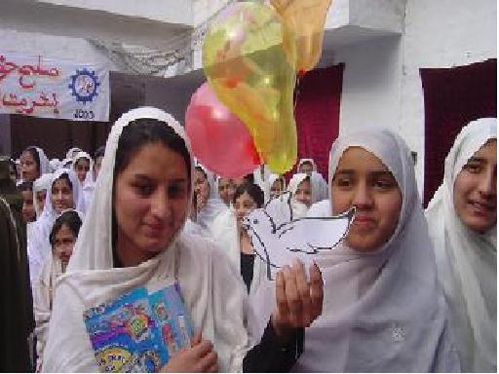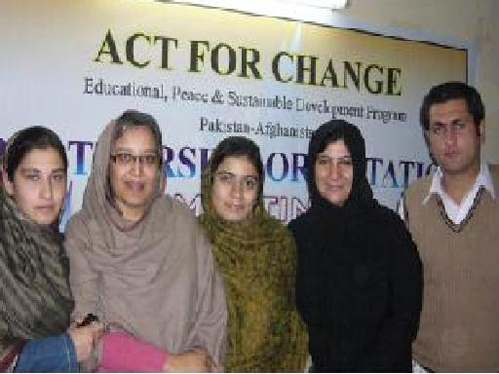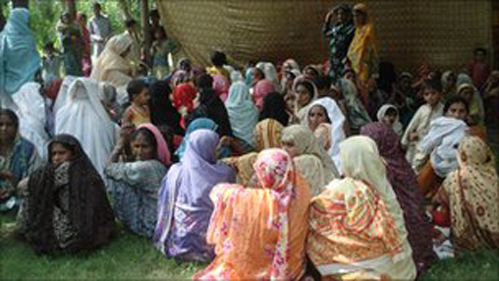Pakistan Flood Update # 3: Insan’s Work

The flooding in Pakistan continues but the humanitarian effort is finally under way. In this article, we focus on the response of Insan Foundation, World Accord’s partner.
What the Insan Foundation Does
Insan works to promote peace, gender equity and women’s empowerment in Pakistan. Insan delivers programs in the areas of education awareness raising and capacity building in support of women’s social and political participation prevention of violence against women media and religious tolerance
health
Insan is active in some of the regions of Pakistan most afflicted by war, extremism and poverty like Khyber Pakhtunkhwa and Balochistan. Insan also acts as the secretariat for a civil society network working to promote the participation of women in peace and reconstruction efforts.
Since 2002, Insan has also worked with Afghan refugees and Pakistanis displaced war in the North of the country. Particularly more than 10,000 women in regions where food, water, sanitation, transportation and health services are scarce. Insan works with other organizations to provide reproductive rights trainings, and maternal care referrals there. Insan’s work in this area has also reached about 40,000 children, youth and community members.
Insan also has strong experience responding to emergencies with an emphasis on the needs of women and girl children. It effectevely distributed relief materials following the destructive earthquakes of 2005 and 2007. Insan’s work is recognized in Pakistan and abroad. Some of its partners include the Global Fund for Women, the National Endowment for Democracy, the United States Institute for Peace, United Nations Development Fund for Women, and Right to Play among others. You can learn more about Insan’s work here.

How Insan is Responding to the Crisis
Soon after the start of the massive floods in Pakistan, Insan re-focused much of its work to respond to the emerging need. At the start of this month, Insan began assessing needs in the Swat and Kalam regions in the extreme north, as well as part of Southern Pakistan, including Muzaffar Garh and Rajan Pur.
Insan identified security, health and sanitation as top unmet priorities for women. Many women recounted stories of not being able to bathe for weeks, and the health problems this creates. Women also expressed heightened concern for their safety in this time of crisis given the sway semi-feudal rulers and religious extremists hold in some parts of the country. Fear of sexual harassment, particularly after nightfall, is also prevalent.
Insan decided it could most effectively respond by distributing portable emergency packages to women. At present, Insan is collecting resources and materials for the 1,000 emergency packages it plans to distribute over the next two months. These packs contain blankets, hygiene packs for women, solar-powered lanterns, and solar-powered fans (in South Pakistan). The kits will be given to women, prioritizing those with 4 children or more.
The Insan foundation reaches areas that many other agencies do not. However, it also works in close coordination with UN-led relief efforts, and with local administrations to reach women and children. Insan, for instance, sits on one of the bodies responsible for screening efforts aimed at improving the protection of women affected by the crisis (along with UNICEF, the UN High Commissioner for Refugees, and Church World Services). Insan’s emergency response work also relies on the capacity of its hundreds of volunteers on the ground.
In addition, Insan recently signed an agreement with the Canadian International Development Agency (CIDA Pakistan) for $50,000 to assist in the early recovery and support of 500 families in Punjab province.
Why this Response
World Accord’s first update on Insan’s response to the floods in Pakistan highlighted the importance of addressing the needs of women and children. Part of the rationale for this is that these populations are generally more vulnerable. Another reason has to do with the role of women in their communities. Women are often caregivers helping to look after abandoned children, the elderly, and the sick. Prioritizing women is also a way of reaching some of the most at risk members of communities affected by the floods. It creates a multiplier effect. As Insan, executive director, Kishwar Sultana, recently said, “what we are giving is not a priority for most [aid agencies] at the moment. They are focused on food, health and water. We are one step ahead trying to create a protection for women and children.”

Next Steps
Insan has the capacity to effectively use about $250,000 for its flood response. So far World Accord has received about $1,200 in donations designated for the flood response. We will be assessing the amount of our additional response in the next days. We are asking all of World Accord’s friends and supporters to consider making a donation.
The federal government will match all donations made before September 12, 2010 with a donation of equal value to Canada’s Pakistan Flood Relief Fund.
